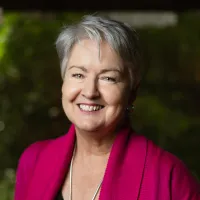ARTICLES
Home / Articles

Who Gets Your Super? An Empowering Guide to Securing Your Legacy
When you map out your wealth journey, your focus is likely on growth and achieving financial freedom for retirement. But have you paused to consider the legacy your superannuation will leave behind? It's a common misconception that your Will automatically directs your super. In reality, it operates under its own set of rules.
Your super is held within a trust structure, meaning the fund's trustee is responsible for its distribution upon your passing. To ensure your wealth is passed on according to your wishes, you need to provide the trustee with clear guidance. This is achieved by nominating a beneficiary. Let’s explore the fundamentals to empower your decision-making.
Binding vs. Non-Binding Nominations: Understanding Your Level of Control
You have two primary pathways to communicate your intentions to your super fund, each offering a different degree of influence over the final outcome.
A Binding Death Benefit Nomination is a clear and direct instruction to your super fund’s trustee. It is designed to provide the highest level of certainty that your super will be paid to the person or people you nominate, provided the nomination is valid and compliant with the fund’s rules at the time of your death.
Lapsing vs. Non-Lapsing: Many funds use “lapsing” nominations, which typically expire every three years, requiring renewal. However, an increasing number now offer “non-lapsing” nominations that remain in place indefinitely unless you actively change or revoke them.
For SMSFs: The High Court’s decision in Hill v Zuda clarified that the three-year lapsing rule doesn't apply to Self-Managed Super Funds (SMSFs). This confirms the validity of non-lapsing binding nominations for SMSFs, as long as the fund’s trust deed permits them.
A Non-Binding Nomination acts as a strong "signal" or guide for the trustee. It’s not a command. The trustee will consider your wishes alongside the specific circumstances of your potential dependants when the time comes. Ultimately, they hold the discretion to make the final decision. While these nominations usually don’t expire, it's important to review them regularly, as the trustee’s final assessment can override your stated preference.
Who Can You Nominate as a Super Beneficiary?
Superannuation law is specific about who is eligible to receive your death benefit directly. The person you nominate must be your ‘dependant’ or your Legal Personal Representative.
A dependant under the Superannuation Industry (Supervision) Act is defined as:
Your spouse, which includes de facto and same-sex partners.
Your children, of any age. (It's important to be aware that the tax treatment can differ significantly for adult children who are not financially dependent).
An individual in an interdependency relationship with you. This typically involves a close personal relationship, living together, and providing mutual financial, domestic, and personal support.
Anyone who is financially dependent on you at the time of your death. This is an inclusive definition that could capture individuals like a parent you were supporting, given sufficient evidence.
If your intention is to leave your super to someone who does not meet the definition of a dependant (such as a sibling, a niece/nephew, or a friend), the pathway is to nominate your Legal Personal Representative (LPR). This is the executor of your Will. Your super is then paid into your estate and distributed according to the instructions laid out in your Will.
The Risks of Inaction: What Happens Without a Valid Nomination?
If you have no nomination, or your binding nomination is found to be invalid, the trustee must step in to determine the outcome. They are legally obligated to identify all eligible beneficiaries and distribute the funds in a way they deem "fair and reasonable." This ambiguity can create significant challenges for your loved ones:
Delays: The process of identifying and assessing all potential dependants can take months, leaving your family without access to crucial funds.
Disputes: The trustee's final decision may not align with everyone's expectations, potentially causing conflict. Unhappy parties can lodge complaints with the Australian Financial Complaints Authority (AFCA).
Unintended Outcomes: Your wealth may be distributed in a way you would not have chosen, simply because your intentions were not clearly documented.
An Additional Strategy for Pensions: The Reversionary Beneficiary
For those already in the pension phase and drawing a superannuation income stream, there's another strategy to explore. A reversionary beneficiary nomination allows your pension to automatically continue to a nominated dependant (most commonly a spouse) after you pass away, without interruption. This can create a seamless transition and ensure continuity of payments.
Key Considerations for Empowered Decision-Making
For Greater Certainty: Explore making a valid binding or non-lapsing binding nomination to provide clear, direct instructions. If you choose a lapsing nomination, set a recurring reminder to review and renew it.
For Beneficiaries Outside the 'Dependant' Definition: Understand the role of your LPR. If you wish to benefit someone like a sibling or friend, nominating your LPR and ensuring your Will is current and clear is the designated pathway.
For Pension Accounts: Investigate if a reversionary nomination aligns with your goals for providing continuity for a dependant, subject to your fund's rules.
The Power of Regular Reviews: Life evolves—marriage, separation, new children. It's wise to review your nominations after any major life event to ensure they reflect your current circumstances and wishes.
Know Your Fund's Playbook: Each super fund operates under its own trust deed. Always confirm your fund’s specific rules regarding nominations, including any witnessing requirements and validity periods.
Your super is a powerful tool for building your future and securing your legacy. Understanding how to direct it is a vital step in wealth stewardship. This information is designed to empower your understanding and is educational in nature. The rules can be intricate, and every personal situation is unique. To explore how these concepts apply to your specific wealth goals, let's have a conversation.
Get Inspired — Join Our Mailing List
Yes, You Can Live a Wealthy Life
You have a coach for your fitness, why not have one for your wealth?
Get started with a free, no-obligation chat.
General Advice Warning
All strategies and information provided on this website are general advice only which does not take into consideration any of your personal circumstances. Please arrange an appointment to seek referral to the correct professional for financial, legal, tax or credit advice before acting on any information contained in this website. Nicky Stafford operates in Infinite Wealth Partners Pty Ltd. ABN: 76 635 869 644 Nothing on this site constitutes specific financial advice
© Nicky Stafford Business & Wealth Coaching 2025.

